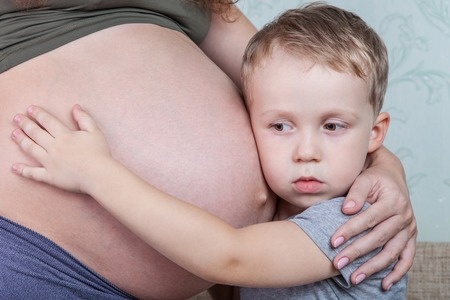
Children grow and learn by watching and engaging with others around them.
Participating actively involves expressing ideas and views which are valued, respected and listened to by their peers and adults.
Children of all ages are able to express themselves, however, it is up to the adults around them to show that a child’s right to speak and be heard is taken seriously.
By really listening to children, you show them that you really care about and respect them. They are likely, in turn, to listen to and respect you.

Ways to show children they are being heard
Babies and toddlers (0-3)
-
Spend time watching and smiling at your baby with lots of eye contact
-
Listen to the noises they make and copy them

Pre-school aged Children (3-5)
-
Show you are listening by mirroring, smiling, nodding and repeating back to them some of what they have told you
-
Spend time with your child while doing something active (puzzles, walking, eating) listen and ask open-ended questions.

Primary school children (5-12)
-
Ask about the day, friends, interests, opinions and how they would solve problems.
-
Try not to rush or take over the discussion, be encouraging if they are a little stuck or shy
-
Create opportunities for them to excel and gain a sense of their own capabilities

For more information about ways to support children to speak, participate and decide, view the NAPCAN brochure: Ways to support and encourage a child’s right to be heard
For more parenting information and support:
Parentline ACT (02) 6287 3833
Parentline NSW 1300 130 052
Parentline NT 1300 301 300
Parentline QLD 1300 301 300
Parent Helpline SA 1300 364 100
Parenting Line TAS 1300 808 179
Parentline VIC 13 22 89
Parenting Line WA (08) 6279 1200 (Metro) 1800 654 432 (Freecall STD)
Parenting lines provide a telephone service providing information and good ideas about caring for babies and children.
Kids Helpline 1800 55 1800
The Kids Helpline is a free 24-hour telephone counselling service for children and young people aged between 5 and 25.
Source:
Content consultants:
Gillian Lee (Clinical Psychologist)
Dr Sue Packer AM (Communit Paediatrician)
NAPCAN is an independent charity and the leading advocacy body for the prevention of child abuse and neglect.
MORE READING:
7 Ways parents can help children cope with separation and divorce
Why is My Health Record a risk for single parents?
Back to School After Holiday Divorce
How to help children who are feeling sad about grief and loss
Published by: Divorce Resource



Comments
<a href=https://streamhub.shop/nakrutka-zriteley-kick/>Накрутка kick</a>
<a href=https://streamhub.shop/streamer-blog/nakrutka-zritelej-kick/112-plyusy-i...накрутка зрителей Kick в 2025</a>
<a href=https://streamhub.world/buy-twitch-viewers/>Buy Twitch Viewers</a>
<a href=https://streamhub.world/fi/>streamhub</a>
<a href=https://streamhub.shop/>streamhub shop</a>
<a href=https://streamhub.world/>streamhub world</a>
<a href=https://streamhub.shop/>накрутка твич</a>
<a href=https://streamhub.world/>boost twitch</a>
Add new comment